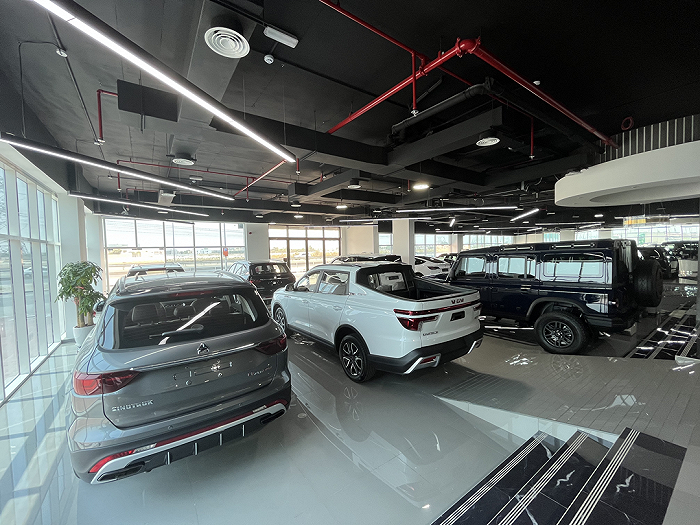شركات سيارات الطاقة الجديدة الصينية تقود التوسع في أسواق الشرق الأوسط
قد يبدو غير محتمل, لكن التحول غير العادي يتكشف الآن في واحدة من أقل المناطق التي تعتمد على النفط في العالم.
عبر المدن الصاخبة مثل دبي وأبو ظبي, في قلب الشرق الأوسط, ظهرت ظاهرة غير متوقعة. لم تعد أماكن وقوف السيارات الأكثر رواجًا في كل مركز للتسوق مخصصة للمركبات الفاخرة التي تعمل بالبنزين; هم الآن مكرسون للسيارات الكهربائية.

(صورة: Dubai Motor Trading Company)
“اليوم, تزدهر محطات الشحن في كل مركز مستهلك, مجمع المكتب, وجيب سكني عبر الإمارات العربية المتحدة, مع السيارات الكهربائية التنقل بسلاسة إلى مناظر المدينة. لكن قبل بضع سنوات فقط, كانت فكرة شحن المحطات داخل مراكز التسوق حلمًا بعيدا, وشوهد القليلون,” شارك جونو, مدير المبيعات الإقليمي لشركة تداول سيارات بارزة, مقرها في دبي.
يمثل هذا الحضن السريع للتنقل الكهربائي الانتقال الرائع للشرق الأوسط. Despite its relatively recent entry into the مركبة الطاقة الجديدة arena, لم يكن تقدم المنطقة أقل من مذهلة.
A regular commuter in Dubai can now witness a captivating sight on their daily route: a sleek vehicle accelerating with unmatched swiftness. Traditionally, this spectacle was reserved for high-performance gas-guzzlers like Lamborghinis; لكن, nowadays, the odds are high that the speeding car is a Chinese electric vehicle.
The secret to this electrifying acceleration lies in the ingenious design of these cars, which can reach 100 kilometers per hour in a mere 3 الثواني. في المقابل, the most celebrated fuel-powered brands like Lexus, مرسيدس بنز, and BMW, after years of development, require over 6 seconds for the same feat.
This transformation hasn’t gone unnoticed by industry insiders like Juno, who recognize that the Middle East is fast becoming a pivotal overseas market for China’s burgeoning electric vehicle sector.
Statistics from the China Association of Automobile Manufacturers underscore this burgeoning trend. Cumulative vehicle exports data from January to November 2022 spotlight the Middle East as a thriving destination, with countries like Saudi Arabia, the United Arab Emirates, and other nations making a notable contribution. Export figures grew an impressive 2.7 times compared to the previous year.
في 2023, China’s new energy vehicles continue to dazzle on the global stage. Recent reports from the China Association of Automobile Manufacturers reveal that the first half of the year witnessed a staggering 76.9% year-on-year increase in complete automobile exports, accounting for a remarkable 2.341 مليون وحدة. This marked growth led to an export value of $46.42 مليار, a figure that surged by 1.1 times. In an unprecedented turn, China’s automotive exports have overtaken Japan’s for two consecutive quarters, cementing its position as the world leader.
As China’s automotive prowess reverberates globally, emerging markets have begun to take note of the nation’s advancements in new energy vehicles.
As evidence of this new reality, نيو secured a monumental $1.1 billion strategic investment from CYVN Holdings, an Abu Dhabi-based investment institution, in late June. This move, coupled with the recent cooperation agreements of other prominent Chinese electric vehicle manufacturers, sparked vibrant discussions within the industry. علاوة على ذلك, just a few weeks later in July, companies like Jikrypton and Xiaopeng unveiled ambitious plans in Israel.
With unwavering momentum, Chinese electric vehicles are accelerating their presence into the heart of the Middle East, embodying a seismic shift in the region’s automotive landscape.
 السيارات في الصين
السيارات في الصين